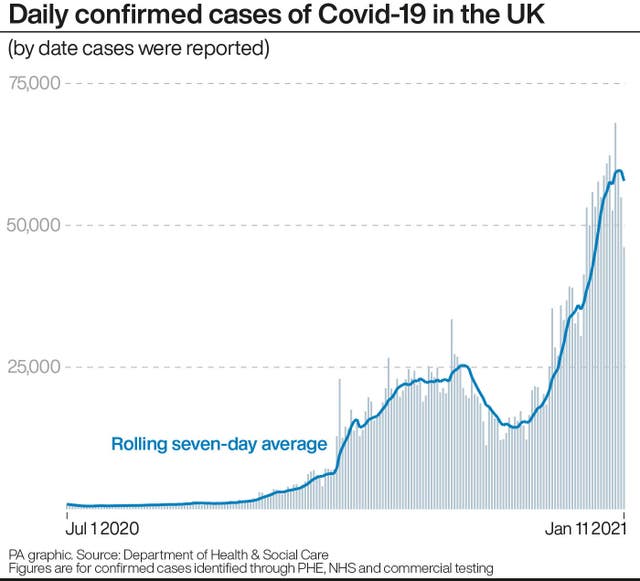Police will move “swiftly” to fine people who blatantly ignore coronavirus lockdown rules, Britain’s most senior officer has warned.
Metropolitan Police Commissioner Dame Cressida Dick said officers in London had issued more than 300 notices in the space of 24 hours for “flagrant” violations of the regulations.
“That is quite a lot. I think it will have an impact and it will encourage more people to recognise that we are in a health crisis,” she told BBC Radio 4’s Today programme.
“We are at a terrible time. For the next few weeks, we must absolutely do our best to reduce the spread of the virus.”
Her warning came as Prime Minister Boris Johnson said the pandemic was at a “pivotal stage” and that the country “cannot take our foot off the pedal”.
Crime and policing minister Kit Malthouse said the Government was closely monitoring the numbers of cases before deciding whether further measures were needed for England.
“We are at a very, very perilous stage in the progress of this virus through our country,” he told Sky News.
“Whether there are going to be greater restrictions or not very much depends on the numbers. We are tracking the infection rate.
“We are all, frankly, on tenterhooks to see how the impact of the restrictions that came in on Boxing Day will impact on numbers, particularly in London and the South East.”
Amid concern that activity levels were higher than during the first lockdown in April, Mr Malthouse said officers would be adopting a new “high-profile” approach to enforcing the rules.
He said that it could include stopping people to ask what they were doing outside their homes – in what he described as a “significant change” in the British policing model.
“It’s certainly the case that the police are going to be very high profile,” he told Times Radio.

“It’s certainly part of police’s job to stop people and enquire as to the reasons why they’re outside their house.
“It is a very significant change and it’s a challenge for British policing that relies on a model of consent.”
Dame Cressida said while the “vast majority” of the public were complying with the rules, her force had had to break up protests and house parties held in clear violation of the regulations.
She said her officers would also be prepared to assist supermarket staff if customers became “obstructive and aggressive” when they were told they must wear a face covering.
Her warning came as Morrisons said customers who refused to wear a mask without a medical exemption will be told to leave its stores, while Sainsbury’s said its security staff would “challenge” shoppers who were not wearing masks or entering stores in groups.
Dame Cressida said: “We will move more quickly to enforcement, and particularly where somebody is breaking the law, breaking the regulations, and if it is absolutely clear that they must have known, or do know that they are, then we will move very swiftly to enforcement and fining people.”
At the weekly meeting of the Cabinet – held by video conference call – Mr Johnson emphasised the importance of keeping to the rules while the vaccine was rolled out.
Ministers were briefed on progress of the programme by NHS England chief executive Sir Simon Stevens and Brigadier Phil Prosser, the head of military support.
“The PM highlighted that we are at a pivotal stage in the pandemic and that it is more important than ever that the public stay at home and protect the NHS,” the spokesman said.
“The Prime Minister made clear that he believes that while vaccination is our way out of the pandemic, we cannot take our foot off the pedal.”
Meanwhile, Health Secretary Matt Hancock has said ministers will consider whether key workers such as police, teachers and essential shop staff should be prioritised once the most vulnerable had received the jab.
“We’ll be looking very carefully at those professions that will need to be prioritised in phase two of the prioritisation programme,” he told MPs at Commons Health and Social Care questions.
“We’ll look at, of course, teachers and police and others, but also we will look at shop workers and we will make those decisions based on the data.”




Comments: Our rules
We want our comments to be a lively and valuable part of our community - a place where readers can debate and engage with the most important local issues. The ability to comment on our stories is a privilege, not a right, however, and that privilege may be withdrawn if it is abused or misused.
Please report any comments that break our rules.
Read the rules hereComments are closed on this article